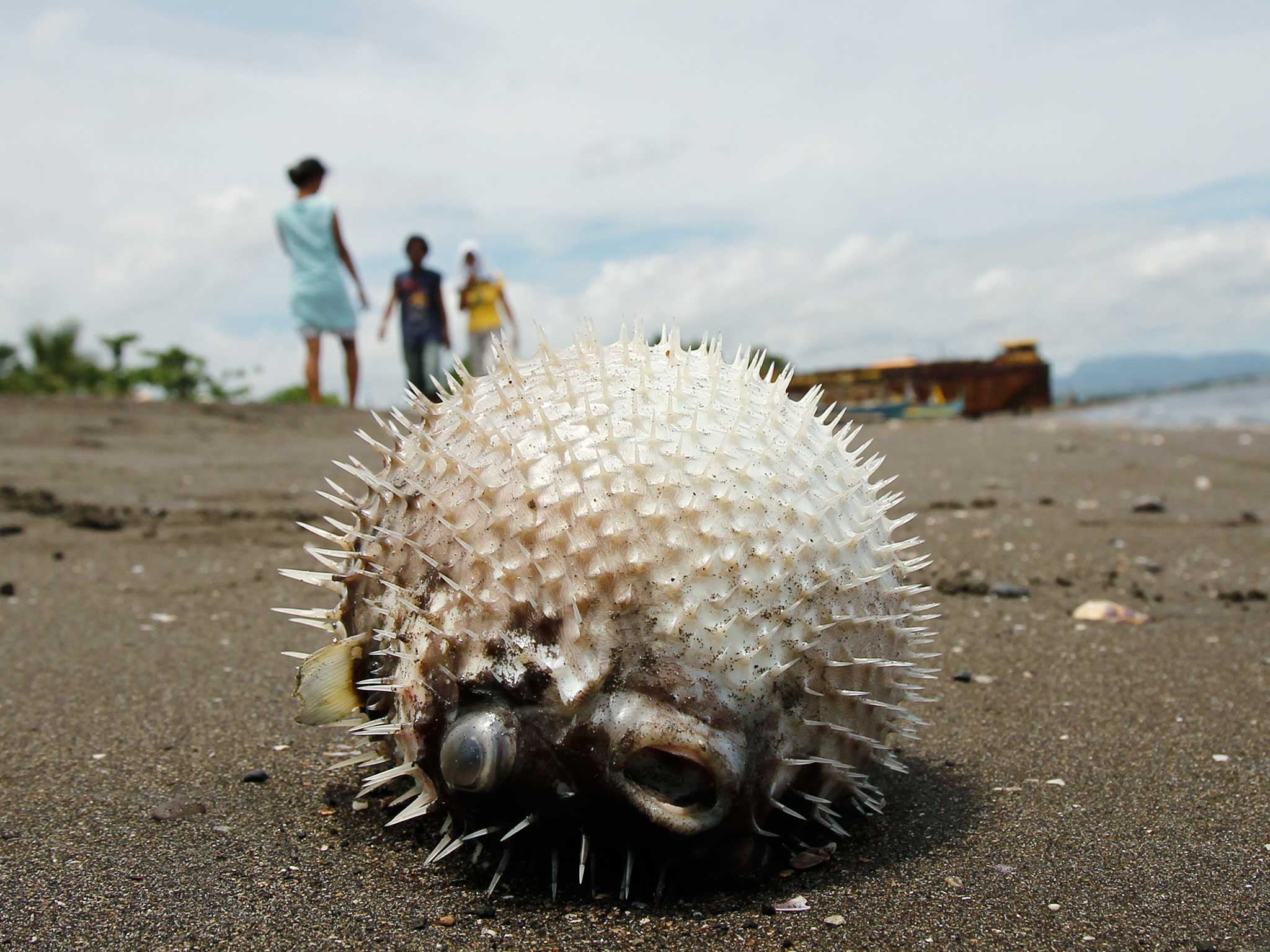Eleven members of same family hospitalised after eating deadly pufferfish
Family were unaware that the fish - a present from a friend - was a hugely poisonous variety

Your support helps us to tell the story
From reproductive rights to climate change to Big Tech, The Independent is on the ground when the story is developing. Whether it's investigating the financials of Elon Musk's pro-Trump PAC or producing our latest documentary, 'The A Word', which shines a light on the American women fighting for reproductive rights, we know how important it is to parse out the facts from the messaging.
At such a critical moment in US history, we need reporters on the ground. Your donation allows us to keep sending journalists to speak to both sides of the story.
The Independent is trusted by Americans across the entire political spectrum. And unlike many other quality news outlets, we choose not to lock Americans out of our reporting and analysis with paywalls. We believe quality journalism should be available to everyone, paid for by those who can afford it.
Your support makes all the difference.Eleven members of the same family are in hospital after unwittingly cooking and eating a poisonous pufferfish for dinner.
The Souza family, from Rio de Janerio, were given the fish by a family friend who had recently returned from a sea fishing expedition off Dubque de Caxias, on the Brazilian coast.
Unbeknownst to anyone, the present was a deadly pufferfish - which contains a toxin 1,200 times more lethal than cyanide, a drop of which can kill in 24 hours.
Only seconds after taking their first bite members of the family began to vomit, before losing feeling in their face, arms and legs.
Most of the victims, including children aged three to five, were paralysed before they could even reach a car to transport them to hospital.
Cristiane Souza described to Brazil’s RJ TV how her husband Jose Augusto, 41, lost all feeling shortly after taking the first bite.
“My husband was the first to say he couldn’t feel his tongue, then his face, and then his arms. Then his legs went dead and he couldn’t stand up any more. It was terrifying.
“My brother-in-law was the same. He didn’t even make it out the door. We had to carry them out and rush them to hospital in a car,” she said, explaining they had invited the entire family round because the fish looked so “tasty”.
Grandmother Maria do Carmo said: “We had no idea it was a pufferfish. They’re all in a critical condition. My grandson, my daughter, and my son-in-law, they are all in hospital. We’re praying for a miracle.
“We put the fish on the table in the yard outside and everyone dived in. They were all saying how delicious it was. I didn’t eat it because I was waiting until everyone had tried it.”
Pufferfish, or ‘Fugu’, is a delicacy in Japan. It is strictly controlled and only chefs who have qualified after three years training can prepare a meal featuring the fish.
Statistics from the Tokyo Bureau of Social Welfare and Public Health indicate 20 to 44 incidents of ‘fugu’ poisoning every year between 1996 and 2006 in Japan – however a single incident can hide multiple casualties.
There is no known cure for the poison, which paralyses the body while leaving the victim, who gradually suffocates, awake. Victims are hospitalised and their stomachs emptied before being fed activated charcoal to bind the toxin. They are also put on life support until the poison wears off.
Join our commenting forum
Join thought-provoking conversations, follow other Independent readers and see their replies
Comments